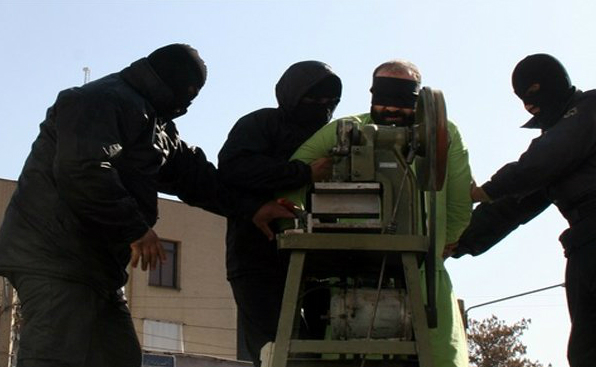Tehran Criminal Court Sentences Three Alleged Thieves to Hand Amputations

An unknown man’s hand is amputated in Iran.
A criminal court in Tehran has sentenced three alleged thieves to hand amputations and other punishments for committing robbery, according to a local newspaper.
Farhikhtegan newspaper reported on February 13, 2017 that the sentences also include three years of imprisonment for each of the unnamed defendants and that they must return the property they have been accused of stealing.
“The two young suspects and their accomplice confessed to robbing the house of a middle-aged man,” reported the daily. “Investigations later showed that all three had prior convictions and that they had also robbed seven villas on Mirdadmad Ave. [in affluent northern Tehran] and had stolen valuables worth around 500 million tomans ($154,000 USD).”
“The defendants were tried by Branch 5 of the First Tehran Criminal Court on February 12, and were sentenced to the amputation of the hand, the return of stolen goods, and three years in prison for carrying out their eighth act of robbery,” added the report.
No date has been set for the amputations.
According to the report, “meeting the conditions for amputation rulings is so difficult that they rarely happen.”
While amputation, flogging, and stoning to death are all legal punishments according to Iran’s Islamic Penal Code, they are considered torture, cruel and unusual punishment, and illegal under international human rights law.
Article 7 of the International Convention on Civil and Political Rights (ICCPR), which Iran ratified in 1975, prohibits governments from subjecting citizens “to torture or to cruel, inhumane or degrading treatment or punishment.”
However, since Iran’s 1979 revolution, the Islamic Republic has adopted Sharia (Islamic laws) that include punishments regarded by human rights groups as cruel and inhumane, such as Article 278 of the Islamic Penal Code, which calls for the “amputation of the full length of four fingers of the right hand of the thief in such a manner that the thumb and palm of the hand remain.”
According to the March 2016 Report of the UN Secretary General on the situation of human rights in Iran, corporal punishment, including amputations, is incompatible with Article 7 of the ICCPR.

